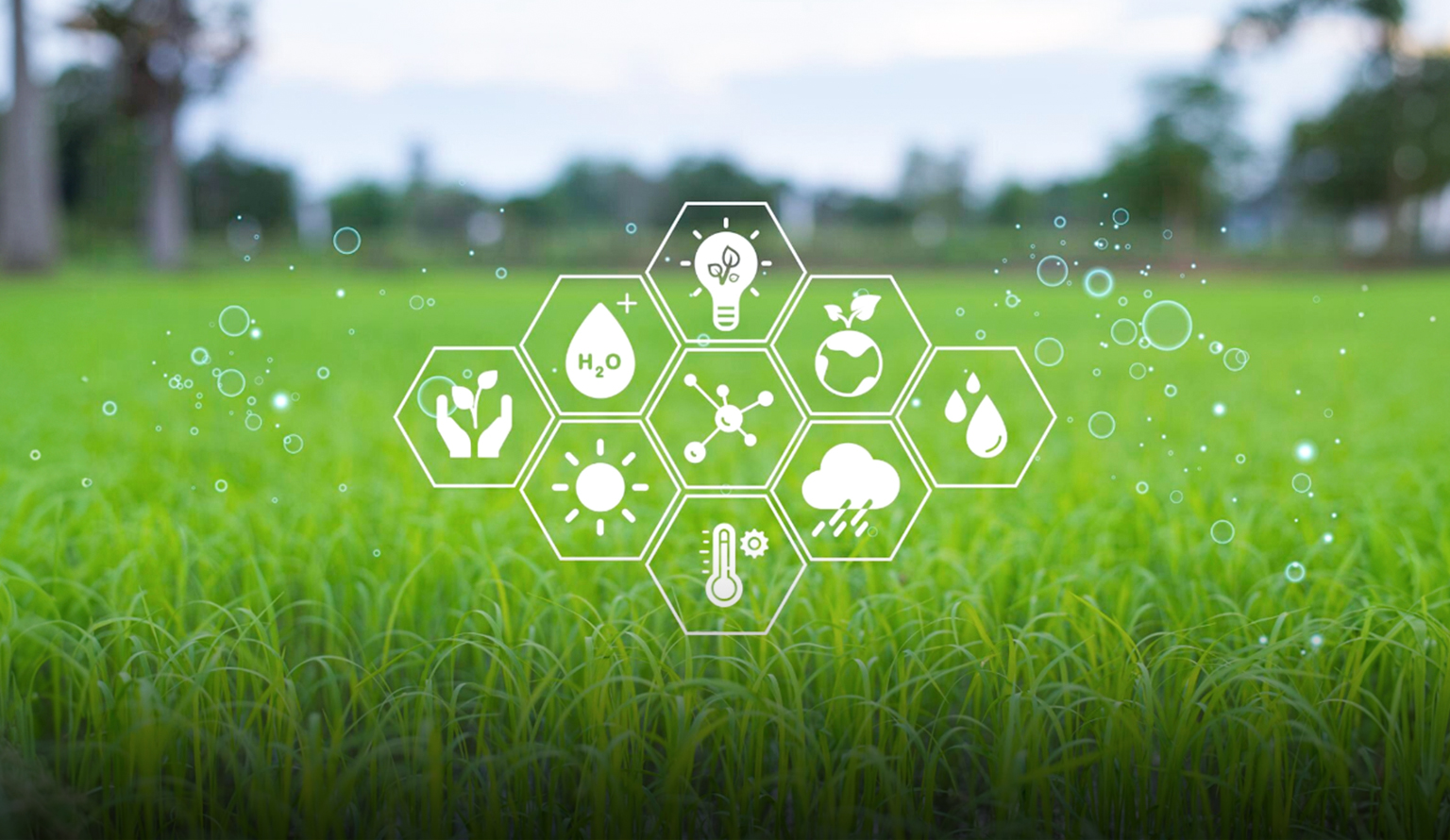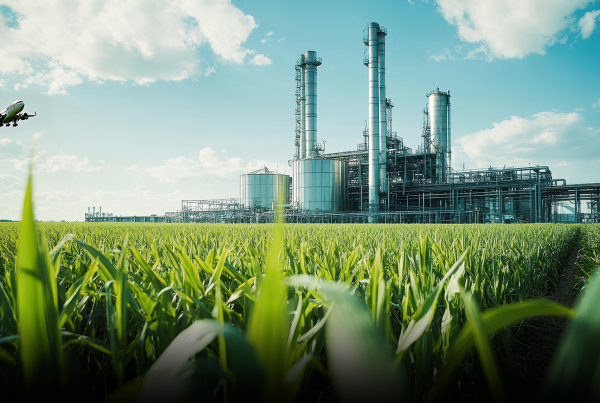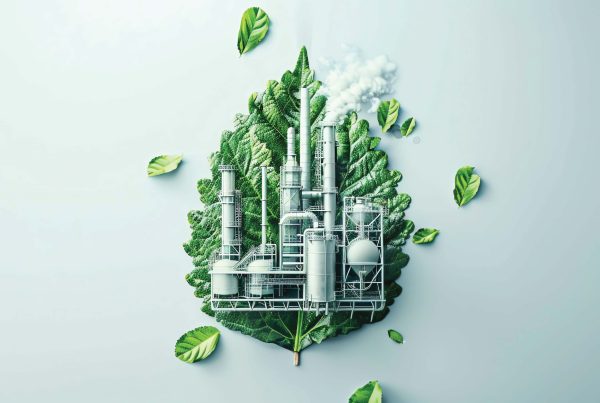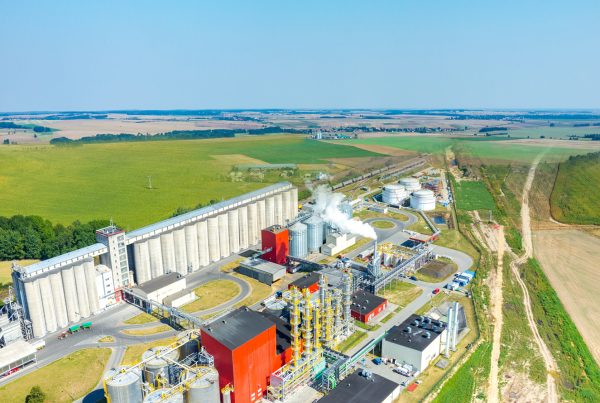India is the world’s third-largest energy consumer, and its growing population and economy are increasing pressure on energy resources. The country is not only moving toward a cleaner future to meet growing energy needs without harming the environment. It is also moving forward with ambitious goals, such as reaching net-zero carbon emissions by 2070 and sourcing 50% of its electricity demand from renewable sources by 2030. A key component of this shift is the adoption of biofuels. More than just a cleaner alternative to fossil fuels, biofuels support energy security and reduce pollution. The role of biofuels is the key to India’s journey toward a greener future.
Understanding the Types of Biofuel
Biofuels are renewable fuels derived from biological materials such as plants, agricultural residues, animal waste, and even algae. In India, the primary types of biofuel include:
- Bio ethanol: Produced mostly from sugarcane molasses and other plant-based materials
- Biodiesel: Made from vegetable oils, animal fats, and recycled cooking oil
- Biogas: Bio-CNG, and bio-HCNG are developed through anaerobic digestion of organic waste
Among these, ethanol biofuel, particularly bio ethanol, is rapidly gaining traction due to its compatibility with existing vehicle engines and its potential to replace a significant portion of petrol usage.
Environmental and Economic Impact of Biofuel
Biofuels present numerous environmental benefits. They emit significantly fewer greenhouse gases compared to fossil fuels and support waste-to-energy solutions. Advanced biofuels such as Sustainable Aviation Fuel (SAF) even promise net-negative emissions when produced from waste biomass.
From an economic standpoint, biofuels enhance energy security by reducing dependence on imported oil. They help protect the economy from global fuel price fluctuations. India’s target of 20% ethanol blending (E20) in 2025 is expected to save up to USD 4 billion annually. Moreover, biofuel initiatives promote rural employment and encourage the use of non-edible crops and agricultural residues. They also spur technological innovation in biomass conversion and renewable energy.
Key Biofuel Uses in India
The broad biofuel uses in India span across multiple sectors:
- Transportation: Ethanol-blended petrol and biodiesel are transforming India’s vehicle fuel ecosystem.
- Public Transport and Logistics: The adoption of bio-CNG and biogas is growing, especially in urban mobility and freight.
- Aviation: The development of SAF is underway to make aviation greener.
- Power Generation: Biofuels are used to replace coal and natural gas in power plants, offering a low-carbon solution.
Challenges in Biofuel Adoption
While biofuels offer the potential for a cleaner and more self-reliant energy future, a few challenges need to be resolved before we can unlock their full impact. One of the main concerns is that growing energy crops can compete with food crops for land and water. This can affect food security. Setting up biofuel plants also requires a high initial investment, which can be a barrier for many. Farmers and small producers are still not aware of how they can benefit from biofuels.
There are also gaps in technology and policy that make it harder to scale up advanced biofuel solutions. The positive side is that these issues can be addressed with the right measures. India can invest more in research, build better infrastructure, and support producers with strong policies. Creating awareness and training for farmers will also help. Global efforts like the Global Biofuels Alliance give India a chance to learn, share, and grow with others. With the right steps, biofuels can play a big role in building a cleaner and greener future.
India’s Growing Biofuel Potential
The future of biofuels in India is optimistic. With over 500 million tonnes of biomass produced annually and an estimated surplus of 120–150 million tonnes, India holds immense untapped potential. The country remains on track to become a global leader in clean energy through strong policy backing, public-private partnerships, and investments in next-gen biofuel technology.
Jakson Group: Leading India’s Biofuel Revolution
While biofuels offer many benefits, challenges like high setup costs, limited farmer awareness, and gaps in infrastructure and technology still hold back their full potential in India. This is where industry leaders like Jakson Group make a real difference.
At the forefront of India’s clean energy movement, Jakson Group is overcoming these hurdles with bold actions and wide-scale solutions. Our cutting-edge biofuels plant in Madhya Pradesh is one such prime example. Built on over 27 acres, this modern facility uses grain-based distillation to produce high-quality ethanol biofuel, with a capacity of 150 KLPD. It has been designed with advanced systems to optimize the use of energy and water. This directly tackles concerns around resource efficiency and sustainability.
At Jakson Biofuels, we are empowering local communities and supporting India’s policy goals on energy security and rural development. We align with national initiatives like the Global Biofuels Alliance to show how the private sector can lead from the front. With a focus on innovation and impact, we are helping bridge the gap between ambition and action. We are committed to transforming the future of biofuels and making India’s biofuel vision into reality.
FAQ:
What are biofuels and why are they important for sustainability?
Biofuels are renewable fuels derived from organic materials (such as plants, agricultural residues, animal waste or algae) rather than fossil fuels. They help reduce greenhouse‐gas emissions, lower dependence on imported oil and support a more sustainable energy system.
What types of biofuels are being used or developed in India?
In India the primary types of biofuel include: Ethanol (produced from sugarcane molasses, grains or other plant-materials) Biodiesel (from vegetable oils, animal fats, recycled cooking oil) Biogas / compressed biogas (CBG) from organic waste and residues
How does Jakson Group contribute to biofuel development?
Jakson Group has established a biofuels plant in Madhya Pradesh with 1G ethanol production capacity, optimised for energy and water usage, and aims to support local agriculture, reduce imports, and advance India’s clean-fuel ambitions.









